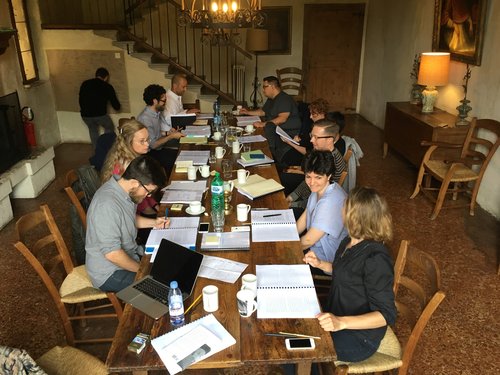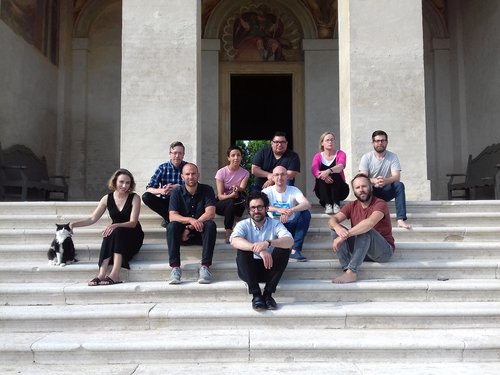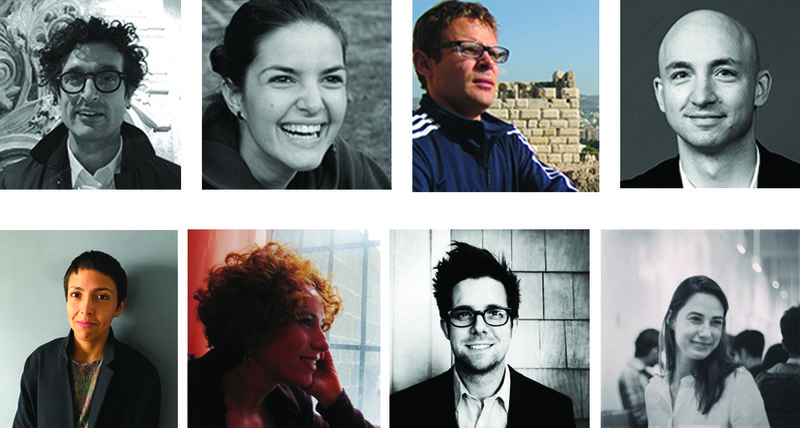
Globalizing the Theory Survey
Workshop Abstract
History has been twinned with theory in architectural schools since the 1960s. Introductory theory surveys were instituted in many architecture curricula in the late 1980s, in what Harry Francis Mallgrave has called “The Gilded Age of Theory.” They have come increasingly to appear as additional history classes since the apparent “waning” of theory in the 2000s. The theory survey has become a history of theory survey, telling parallel stories and being taught by the same specialized history and theory professors, such that they share the same curricula space and curricula mission. As a result of this sibling relationship, both the history survey class and the theory survey class need to respond together to the changing and globalizing reality of our world. While the theory survey, however, shares the same mission to re-think an architect’s humanistic education in a changing global context, it has thus far lagged behind the history survey in this effort.

If the GAHTC has sought to support young, adjunct and assistant history and theory professors to rethink their history survey courses in order to maintain their place within the curriculum against external pressures to cut humanities courses from the architect’s education, then we hope that the GAHTC will consider broadening its mission to include the theory survey courses that those same professors often teach and to the same ends. In fact, the threats to the theory survey are perhaps greater than those to the history survey because the theory survey is the only course in the entire curriculum that carries no “Student Performance Criteria” for NAAB accreditation; given the rising tide of anti-intellectualism in our seemingly “post-theory” moment, deans and administrators would face very little resistance to cutting them. If not similarly revised, the theory survey will very likely face an uncertain future. If the theory survey is lost, the overall humanities education provided within the architectural curriculum and with it the need to hire dedicated tenure track lines in history and theory in the future would diminish greatly.
We propose to convene a 3.5-day, GAHTC, teacher-to-teacher workshop that brings together a consortium of sixteen assistant professors of history and theory in schools of architecture in North America and Europe, who have responsibilities for introductory survey courses in architectural theory and who have a demonstrated interest in pushing the limits of what constitutes the typical content of the existing theory survey course. Participants will be invited to share their current syllabi, and to propose an original, week-long module to be aggregated towards a course outline for a sixteen-week-long, revised, globalized theory survey course. The groupings of sessions will be organized around these topics (though below is a provisional schedule). Anticipated topics would include: expanded canonical theoretical texts from around the world; global ecological crises; global labor practices; big data and smart buildings around the world; the digital and state surveillance; the cyborg body and architecture, etc. Participants will be asked to give one, twenty-minute presentation on their proposed topic, outline the global, theoretical, architectural problems raised by the module, describe global case-studies and recommended readings from a diverse range of theorists for addressing those problems.
During morning and afternoon sessions, groups of three participants will make short presentations, workshop their ideas with the rest of the group, and conclude with a round-table discussion summing up what the group has learned about the general conceptualization of the theory course. As the workshop progresses, all participants will be asked to view the workshop as a single developing conversation and to aim to deepen the groups shared understanding of the possibilities of a new globalized theory survey as each of the sessions develop. The fourth and final day will be entirely dedicated to synthesizing and revising the overall plan for a sixteen-week-long theory survey, consolidating or expanding upon

proposed modules. In the morning session on the final day, the group will divide into four in order to sketch possible course plans in smaller groups. In the final session of the workshop, the group will come together to synthesize and revise one final course plan, including 16 new modules based on key global topics of the future. Each will be complete with short abstracts, required and recommended readings, and an overall abstract for the course. This new template for the future globalized theory survey course will then be copy-edited and made available on the GAHTC website after the workshop, for all GAHTC members to use in teaching their theory survey courses in the future.
The proposed setting for the workshop will be the Villa Saraceno, completed by Palladio in 1555, and now owned by the British Landmark Trust. The Villa Saraceno also frames the issue of globalizing architectural theory by marking an early moment in the history of globalization in which architectural practice and ideas were fundamentally reconfigured by the global conditions such as the reorganization of trade between the Mediterranean, the Atlantic, Indian Ocean and Pacific.
The workshop will seek to ask afresh what key ideas and aspects of architectural thought are most relevant in response to the ongoing reorganization of global conditions; with new populations of students in the classroom, with new notions of global citizenship, and with new, global, economic forces shaping the world in the future. The workshop will question whether ideas that have constituted the recent canon of theory—such as architectural mimesis; the body-building analogy; customary and natural beauty; honesty to materials, construction, structure and labor; utopia; the crisis of modernity; alienation, authenticity; regionalism; contextualism and autonomy, etc., still hold up when scrutinized afresh at a global level. It seeks to question whether the ideas and issues we recapitulate in today’s, typical theory survey are still relevant to our current, global world, or whether they betray a long-standing baggage from the legacy of the French academy and beaux-arts practices of reading the treatises. Assuming that these ideas no longer hold up, the group will put forward a new set of ideas, issues, precedents, case-studies and readings that better serve the globalized theory survey class of the future.
Deliverable
Syllabus 01 - Canonical vs. Non-Canonical
Syllabus 02 - Architecture Unbound
Syllabus 03 - Sites of Entanglement
Syllabus 04 - Mediating Theory
Participating GAHTC Members



